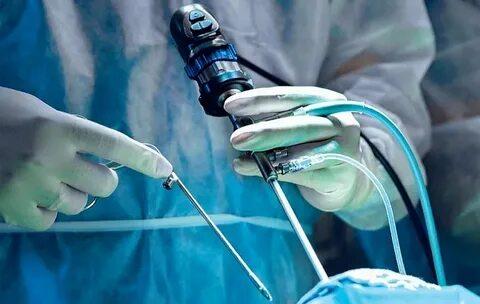If you’ve been dealing with persistent stomach discomfort, unexplained weight loss, or trouble swallowing, your doctor might recommend an endoscopy. But is it really necessary?
Endoscopy is a safe and highly effective diagnostic procedure used to examine your digestive tract using a thin, flexible tube with a camera. It helps identify conditions like ulcers, acid reflux, gastritis, and even early signs of cancer.
In this article, we explore the 7 major symptoms that may require an endoscopy, how the procedure works, and when it’s time to seek medical attention in Singapore.
🔍 What Is an Endoscopy?
An endoscopy allows doctors to view the inside of your digestive system—particularly the esophagus, stomach, and the first part of the small intestine (duodenum)—to detect inflammation, infection, bleeding, or abnormal growths.
Performed under mild sedation, endoscopy is commonly done as an outpatient procedure and usually takes 15 to 30 minutes. It offers a fast and accurate way to diagnose gastrointestinal (GI) disorders without the need for invasive surgery.
🚨 7 Warning Signs You Shouldn’t Ignore
If you're experiencing any of the following symptoms, an endoscopy might be necessary to pinpoint the cause and start proper treatment.
- Chronic Acid Reflux or Heartburn
Occasional heartburn is common, but if you have frequent acid reflux (GERD)—especially if it occurs more than twice a week—it can damage your esophagus. Over time, it may lead to complications like Barrett’s Esophagus, which increases the risk of esophageal cancer.
➡️ Endoscopy helps assess the severity of reflux and check for signs of inflammation or tissue damage.
- Persistent Stomach Pain or Discomfort
Ongoing upper abdominal pain, bloating, or indigestion could signal:
- Gastritis (inflammation of the stomach lining)
- Peptic ulcers
- Helicobacter pylori infection
An endoscopy can confirm the cause, allowing your doctor to prescribe the right treatment before complications develop.
- Difficulty Swallowing (Dysphagia)
If you feel like food is getting stuck in your throat or chest while swallowing, it may be a sign of:
- Esophageal stricture (narrowing)
- Inflammation
- Tumors or growths
Endoscopy helps visualize and biopsy any abnormality, ensuring early detection of serious conditions like esophageal cancer.
- Unexplained Weight Loss
Losing a significant amount of weight without trying is a red flag. It could be linked to malabsorption, ulcers, or cancers of the digestive tract.
Endoscopy plays a crucial role in early diagnosis and helps doctors determine whether further investigations or treatments are needed.
- Chronic Nausea or Vomiting
Frequent vomiting or nausea without an obvious cause should never be ignored. Possible reasons include:
- Gastroparesis (delayed stomach emptying)
- Gastric ulcers
- Blockages or growths in the stomach or upper intestine
An endoscopic examination can uncover the root of the problem and guide the treatment plan.
- Black or Bloody Stools
Black, tarry stools (melena) or vomiting blood (hematemesis) often indicate internal bleeding—commonly from a stomach ulcer or esophageal varices.
An emergency endoscopy can locate the bleeding source and, in some cases, treat it immediately using techniques like banding or cauterization.
- Family History of Digestive Cancers
If you have a strong family history of stomach or colon cancer, your doctor may recommend a screening endoscopy—even if you're not showing symptoms.
Early detection is key, and endoscopy helps identify precancerous polyps or abnormal tissue before they turn malignant.
🏥 Why Choose Singapore for Endoscopy?
Singapore is home to world-class medical facilities and experienced gastroenterologists who specialize in minimally invasive diagnostic procedures. Endoscopy is widely available at both public and private hospitals, with short waiting times and state-of-the-art equipment.
💰 Endoscopy Charges in Singapore (2025)
| Facility Type | Estimated Cost (SGD) |
| Public Hospitals (subsidized) | $600 – $1,000 |
| Private Clinics & Hospitals | $1,200 – $2,500 |
Note: Costs may vary based on whether biopsy or polyp removal is required.
Most insurance plans and MediSave cover part of the procedure, especially if it’s medically indicated.
💡 What to Expect During the Procedure
- Pre-procedure fasting (usually 6–8 hours)
- Local throat spray and sedation to reduce discomfort
- Insertion of the endoscope through the mouth
- Real-time examination and possible biopsy
- Post-procedure observation for 30–60 minutes
You’ll be able to go home the same day, but should avoid driving or operating heavy machinery until the sedation wears off.
🧠 When Is Endoscopy Not Needed?
Not everyone with mild GI symptoms needs an endoscopy. If your symptoms are occasional and respond well to medications, your doctor may first recommend lifestyle changes or non-invasive tests like H. pylori breath tests or stool analysis.
✅ Take Control of Your Digestive Health
Ignoring ongoing gastrointestinal symptoms can lead to serious consequences. An endoscopy is often the best way to get answers early, especially if you’re at higher risk for ulcers, reflux complications, or digestive cancers.
📲 Visit Our Website to Book a Consultation
If you're unsure whether an endoscopy is right for you, speak to a trusted gastroenterologist in Singapore.
👉 Visit our website https://www.alpsclinic.sg/endoscopy-singapore today to learn more about your options, compare endoscopy charges, and schedule an appointment with leading specialists.
